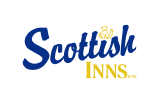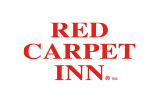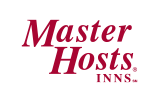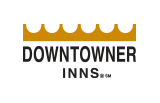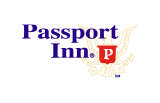By Peter Frantz, Marketing Consultant
We all know it’s been a difficult year, but there are many good signs toward recovery. According to a recent Expedia traveler survey, people have missed traveling and want to reconnect with friends, family and colleagues. Pent-up demand indicates that even the travel sectors hit hardest by COVID-19 may start to see recovery sooner than expected.
Now is the time to develop your marketing strategies as the summer travel season approaches. Considering the lost revenue due to the pandemic, mapping out a strategic plan that maximizes your marketing dollars and takes advantage of low-cost and free marketing opportunities is more important than ever before.
Take the first steps toward building an effective marketing plan by developing an outline covering the key components. Here is an overview that can be adapted to your hotel, market and customer base.
1) Clearly state your objectives – what you need to accomplish
- Create more awareness for your hotel by reaching your target audiences, both current and potential guests, on a consistent basis.
- Increase market share among a crowded field of competitors.
- Build better and ongoing relationships with current guests to increase loyalty and repeat visits, while creating a positive perception of your hotel.
- Generate more revenue from walk-in guests and advanced reservations to your direct booking channel.
2) Define your target audiences
- Percentage of business vs. leisure travelers and identify their specific accommodation needs.
- Any demographic information relating to age, income, gender, households with and without children, etc.
- Outline their interests and activities they participate in when staying at your hotel.
- List your major feeder cities in order to identify strategies to reach these potential guests while making travel decisions.
3) Current marketing strategies
- Make sure to measure and track your current marketing activities to see what is working and what can be improved.
- Always ask guests how they heard about your hotel and why they stayed with you.
- If you’re in a destination area, more advanced reservations are likely vs. walk-in guests.
4) Outline strategies/opportunities
- Start with research to best define the types of media your target audiences are most likely to consume.
- Outline the best channels to reach them and when they are most receptive to your messages. Look at the marketing opportunities that offer the chance to reach your primary customer base relative to where they are looking for information, when, and how they book.
- Identify the most cost-effective strategies to accomplish your goals – your website and Search Engine Optimization strategies, public relations, social media, print, digital, broadcast media, billboards, logo boards, online listings, reviews and promotions for consumers.
- Establish a budget based on the selected media channels working together. You are better off using a combination of advertising methods to reach your audiences vs. just one channel.
5) Develop a strong positioning platform
- How is your hotel perceived by your target audiences?
- Make sure to have a clear positioning statement and unique selling proposition to differentiate your hotel. Managing your online reviews is critical.
- Two-way communication is continuing to expand with people seeking more personalized messages to address their specific needs. Are you using email marketing and social media?
- Obviously, keep in mind the impact of COVID-19 and address the safety concerns your customers have.
- Travelers select hotels based on price, location, reviews & ratings, recommendations by friends, facilities, photos & descriptions, and class of comfort. They are always looking for value.
- Put your best foot forward by really taking a step back and looking at your photos and information on your hotel’s website and/or page on your brand’s website. Make sure to review your competitors’ listings and how you can showcase your hotel’s advantages.
- Consider preparing a video highlighting your hotel and all of its attributes.
6) Implement the plan
- Audience reach and frequency of messages are key components to success.
- Make sure your advertising messages have a consistent format and look for branding.
- Prepare a schedule that fits within your marketing budget and seasonal occupancy goals and is directed toward your best prospective customers when and where they are making travel decisions.
- Track results from the media and also for the creative/messages, then continue testing and adjusting to improve results.
This is just a brief outline with many more details needed to develop a comprehensive plan, but you need to start somewhere. Identify where your hotel is today, where you want to take it next, and how to achieve your goals. Developing an effective plan will take time, but will be worth it in the long run.

